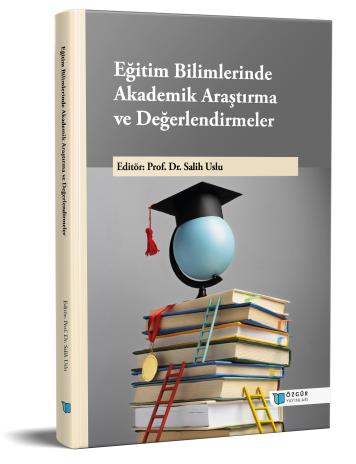
Academic Research and Evaluations in Educational Sciences
Synopsis
Education, as one of the most important dynamics shaping the future of societies, is being reinterpreted and developed in the light of constantly changing information, technology and cultural interactions. This book, titled "Academic Research and Evaluations in Educational Sciences", aims to provide readers with a broad perspective by bringing together various studies and evaluations in the field of educational sciences. The book brings together fourteen original chapters spanning different areas of educational sciences. Each chapter in the book sheds light on different aspects of educational sciences and examines current issues in this field in depth. This diversity aims to create a holistic perspective by addressing not only the technical dimensions of education but also its social, emotional and moral dynamics. The chapters of the book comprehensively address prominent issues in today's educational environment; from innovative applications such as the use of social media for English language applications, analysis of acknowledgments in scientific publications, and the place of digital stories in social studies education to parental emotional accessibility, marital satisfaction and ethical decision-making processes in educational administration. This multi-dimensional approach aims to inspire readers with its rich content in both theoretical and practical terms.
In addition, the integration of action research, artificial intelligence applications, gamification methods and active learning strategies into teaching processes; the use of active learning applications in teaching stereotype-themed subjects; the diversity of teaching materials; current issues such as teachers' savings patterns, financial literacy and the prevalence of cryptocurrency trading, the importance of innovative approaches and pedagogical transformation in education; the theoretical framework of climate justice in social studies education and the role of young activism; the attitudes of social studies teacher candidates towards the Turkish World and the integration of philosophical thought into social studies teaching meet with readers in the chapters of the book.
I believe that this book will be a valuable resource for academics, teachers and students working in the field of educational sciences. The research and evaluations in the book will be useful for anyone who wants to explore various aspects of educational sciences and increase their knowledge in this field.
I would like to thank all our authors and everyone who contributed to the preparation of the book. I hope that this book will open new horizons in the field of educational sciences and inspire readers.

